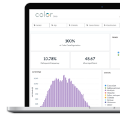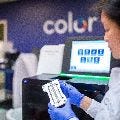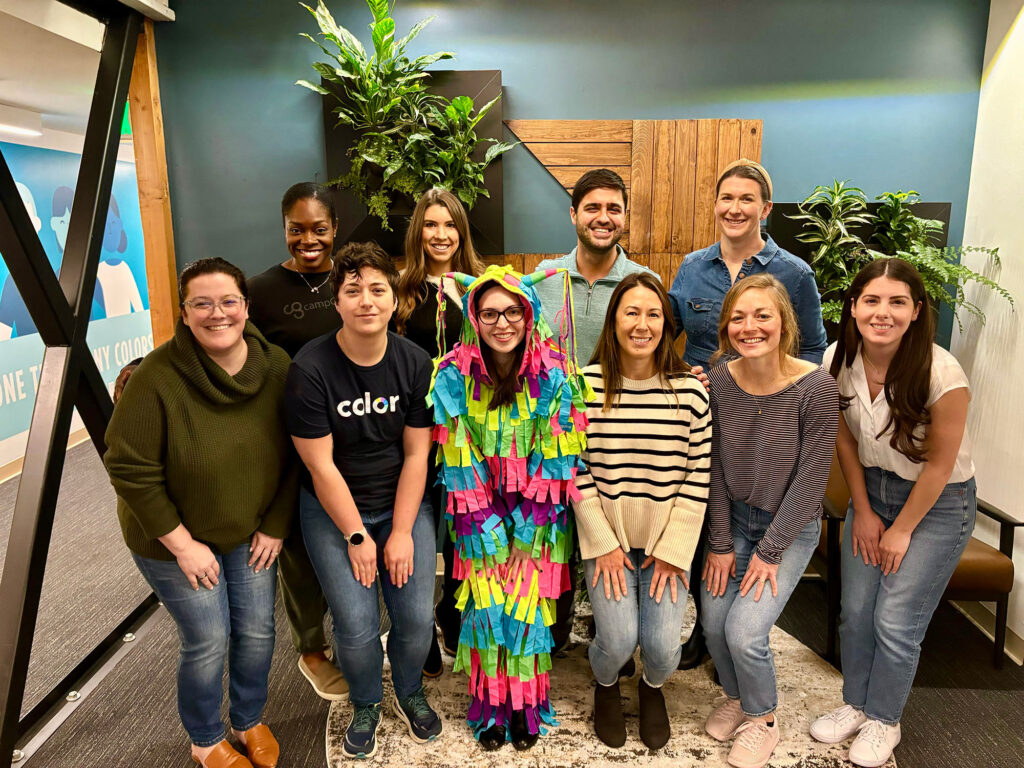News & Articles
Quarterly Color Abstract
Ben Kobren

We wanted to share the Q1 2019 Color Abstract, a quarterly review of company news and recent scientific highlights, to make it easier to stay current on what we’re up to. If you found this interesting, sign up for our quarterly Color Abstract here.
Color News

Bringing the Power of Genomics to Primary Care with NorthShore University Health System
Color is excited to announce a landmark partnership with Chicago’s NorthShore University Health System to deliver genomic insight to patients at the primary-care level. As part of the collaboration, the hospital system will offer Color’s genomic health tests to more than 10,000 patients as a primary-care service, rather than only to patients with genetic health risks. Dubbed “DNA10K,” the initiative will support NorthShore’s efforts to improve patients’ health outcomes at a population level and will be the largest known primary care-based genomics program in the U.S. Learn more.

Improving the Accuracy of Polygenic Risk Scores in Diverse Populations
As part of Color’s efforts to make genetic testing results accessible and useful for all, we have launched a research initiative in partnership with Illumina that aims to improve the accuracy of polygenic risk scores, particularly for underserved populations. This initiative will test a diverse group of up to 100,000 volunteers and utilize low-coverage whole-genome sequencing (lcWGS), an approach we have tested using Illumina’s NovaSeq platform. This will build the foundation for the first mainstream application of whole genome sequencing in clinical care. Color will use the same platform to roll out a polygenic risk score for cardiovascular disease, allowing patients and their doctors to make proactive lifestyle or medical changes informed by their score to help prevent premature heart attack and disease. Learn more.
Recent Color Publications

The field of clinical cancer genetics is rapidly expanding, generating an influx of human genomic data to be stored, analyzed, and interpreted. This crucial data is oftentimes buried or inaccessible to researchers, especially those without strong programming backgrounds. To better share this information, we developed Color Data, the largest public database of de-identified, aggregated clinical and genetic information from 50,000 individuals who were sequenced for 30 genes associated with hereditary cancer. The report looks at how the website was built and dives into three relevant use-case examples; women with personal history of breast cancer, Ashkenazi Jewish BRCA1 and BRCA2 founder alleles, and individuals with Lynch syndrome. By enabling broad access and data literacy, the hope is that Color Data will help scientists analyze genotype-phenotype correlations in hereditary cancer, identify novel variants for functional analysis and drive data-driven drug discovery and development. Learn more.
BigQuery, a Google offering, helped to bring Color Data to fruition (Google case study).

African Cancer Genomics Initiative
Color is collaborating with Dr. Olufunmilayo Olopade from the University of Chicago, who is a pioneer and leader in the field of cancer genetics in Africa. Dr. Olopade’s project is looking at the prevalence of mutations in cancer predisposition genes in many different African countries. Through her many collaborations with African academic centers and hospitals, Dr. Olopade has managed to collect hundreds of patients who have been affected with early-onset, high-risk breast cancer. Color has worked with her to sequence these samples. In addition, we have worked with Dr. Olopade to bring affordable and accessible clinical genetic testing to Africa, starting with her home country of Nigeria. Dr. Olopade has assembled a team in Nigeria that has handled the entire clinical testing process from collecting samples to delivering results back to patients. To date, over 100 patients have received genetic testing at two clinics located in Ibadan and Lagos in Nigeria. Learn more.
(Color in collaboration with Dr. Olufunmilayo Olopade)

Conducting first-of-its-kind research on rare TP53 variant to better understand hereditary disease
Li-Fraumeni syndrome, or LFS, is a hereditary condition that predisposes affected individuals to cancerous tumors at a young age. The condition is most often caused by a pathogenic variant in a tumor-suppressor gene called TP53. In the first report of its kind, Color scientists collaborated with Malak Abedalthagafi from the King Fahad Medical City in Saudi Arabia to study a rare instance of the TP53 variant in a Saudi family. Based on their findings, the authors hypothesize that the variant has low or variable penetrance for LFS with a predisposition for choroid plexus carcinoma. This case report has allowed for greater understanding of the phenotypic variability of TP53, even within the same family, and further points to the influence of multiple factors, both genetic and environmental, on disease manifestation in individuals with LFS. Learn more.
(Color in collaboration with Malak Abedalthagafi from the King Fahad Medical City in Saudi Arabia)



